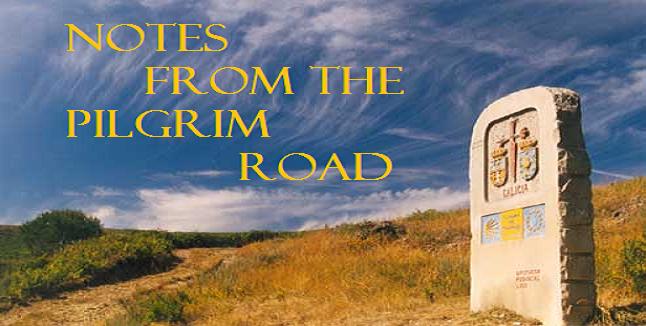`On the night preceding the surrender doleful lamentations filled the halls of the Alhambra, for the household of Boabdil were bidding a last farewell to that delightful abode. The most precious effects were hastily packed upon mules, and with tears and wailing the rich hangings and ornaments of the beautiful apartments were removed. Day had not yet dawned when a sorrowful cavalcade moved through an obscure postern gate of the palace and wound through a retired quarter of the city. It was the family of the deposed monarch, which he had sent off thus early to save them from possible scoffs and insults.
The sun had barely risen when three signal-guns boomed from the heights of the Alhambra, and the Christian army began its march across the vega. To spare the feelings of the citizens it was decided that the city should not be entered by its usual gates, and a special road had been opened leading to the Alhambra.
At the head of the procession moved the king and queen, with the prince and princesses and the dignitaries and ladies of the court, attended by the royal guards in their rich array. This cortege halted at the village of Armilla, a league and a half from the city. Meanwhile, Don Pedro Gonzalez de Mendoza, Grand Cardinal of Spain, with an escort of three thousand foot and a troop of cavalry, proceeded towards the Alhambra to take possession of that noblest work of the Moors. At their approach [146] Boabdil left the palace by a postern gate attended by fifty cavaliers, and advanced to meet the grand cardinal, whom, in words of mournful renunciation, he bade to take possession of the royal fortress of the Moors. Then he passed sadly onward to meet the sovereigns of Spain, who had halted awaiting his approach, while the army stood drawn up on the broad plain.
As the Spaniards waited in anxious hope, all eyes fixed on the Alhambra heights, they saw the silver cross, the great standard of this crusade, rise upon the great watch-tower, where it sparkled in the sunbeams, while beside it floated the pennon of St. James, at sight of which a great shout of "Santiago! Santiago!" rose from the awaiting host. Next rose the royal standard, amid resounding cries of "Castile! Castile! For King Ferdinand and Queen Isabella" The sovereigns sank upon their knees, giving thanks to God for their great victory, the whole army followed their example, and the choristers of the royal chapel broke forth into the solemn anthem of "Te Deum laudamus."
Ferdinand now advanced to a point near the banks of the Xenil, where he was met by the unfortunate Boabdil. As the Moorish king approached he made a movement to dismount, which Ferdinand prevented. He then offered to kiss the king's hand. This homage also, as previously arranged, was declined, whereupon Boabdil leaned forward and kissed the king's right arm. He then with a resigned mien delivered the keys of the city.
MOORISH KING PAYING HOMAGE TO THE KING OF CASTILE.
"These keys," he said, "are the last relics of the [147] Arabian empire in Spain. Thine, O king, are our trophies, our kingdom, and our person. Such is the will of God! Receive them with the clemency thou hast promised, and which we look for at thy hands."
"Doubt not our promises," said Ferdinand, kindly, "nor that thou shalt regain from our friendship the prosperity of which the fortune of war has deprived thee."
Then drawing from his finger a gold ring set with a precious stone, Boabdil presented it to the Count of Tendilla, who, he was informed, was to be governor of the city, saying,—
"With this ring Granada has been governed. Take it and govern with it, and God make you more fortunate than I."
He then proceeded to the village of Armilla, where Queen Isabella remained. She received him with the utmost courtesy and graciousness, and delivered to him his son, who had been held as a hostage for the fulfilment of the capitulation. Boabdil pressed the child tenderly to his bosom, and moved on until he had joined his family, from whom and their attendants the shouts and strains of music of the victorious army drew tears and moans.
At length the weeping train reached the summit of an eminence about two leagues distant which commanded the last view of Granada. Here they paused for a look of farewell at the beautiful and beloved city, whose towers and minarets gleamed brightly before them in the sunshine. While they still gazed a peal of artillery, faint with distance, told them that the city was taken possession of and [148] was lost to the Moorish kings forever. Boabdil could no longer contain himself.
"Allah achbar! God is great!" he murmured, tears accompanying his words of resignation.
His mother, a woman of intrepid soul, was indignant at this display of weakness.
"You do well," she cried, "to weep like a woman for what you failed to defend like a man."
Others strove to console the king, but his tears were not to be restrained.
"Allah achbar!" he exclaimed again; "when did misfortunes ever equal mine?"
The hill where this took place afterwards became known as Feg Allah Achbar; but the point of view where Boabdil obtained the last prospect of Granada is called by the Spaniards "El ultimo suspiro del Moro," or "The last sigh of the Moor."
.JPG)

.JPG)
.JPG)
.JPG)
.JPG)
.JPG)
.JPG)
.JPG)
.JPG)
.JPG)
.JPG)
.JPG)
.JPG)
.JPG)
.JPG)
.JPG)
.JPG)
.JPG)
.JPG)
.JPG)
.JPG)
.JPG)
.JPG)
.JPG)

No comments:
Post a Comment